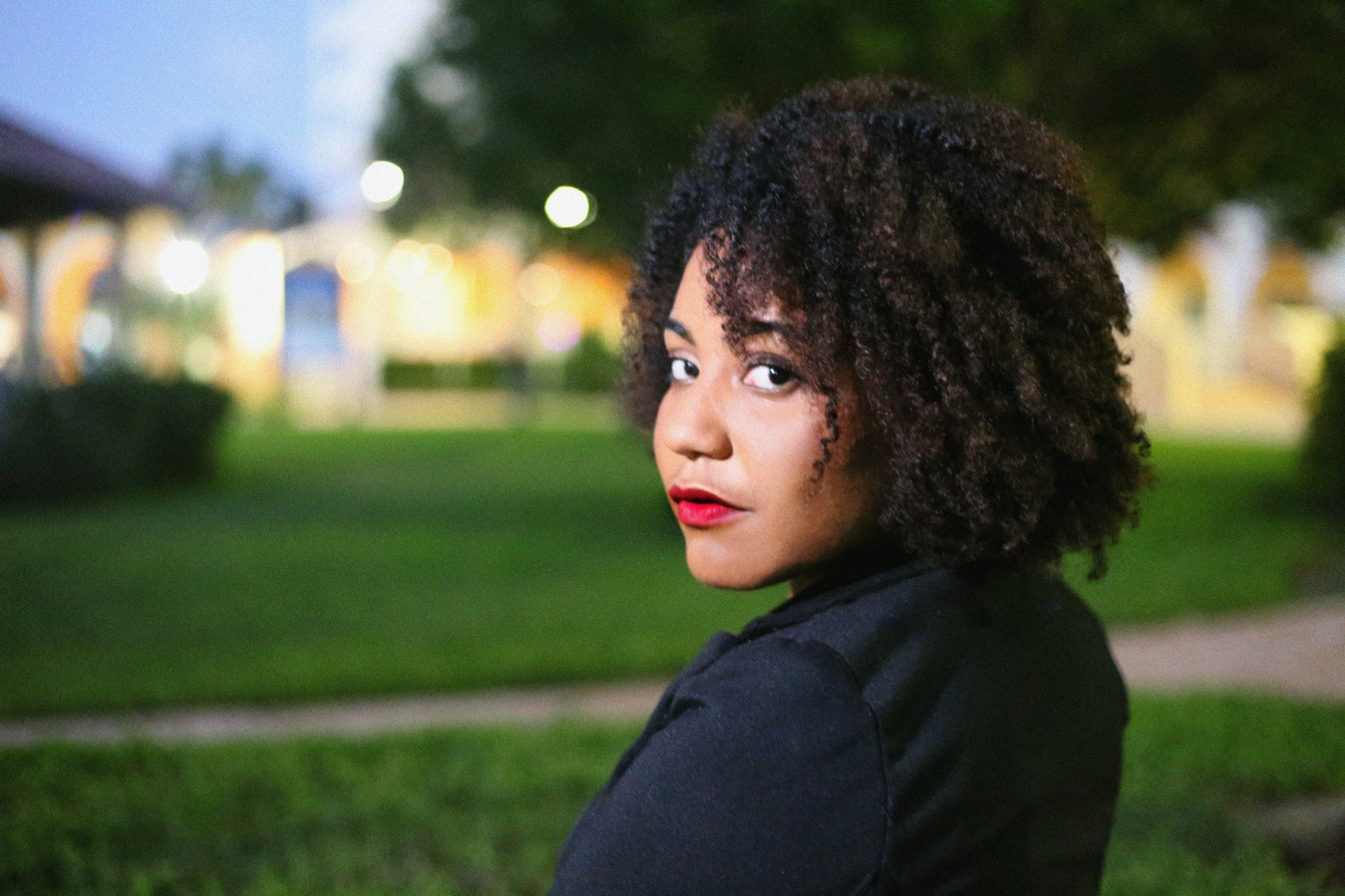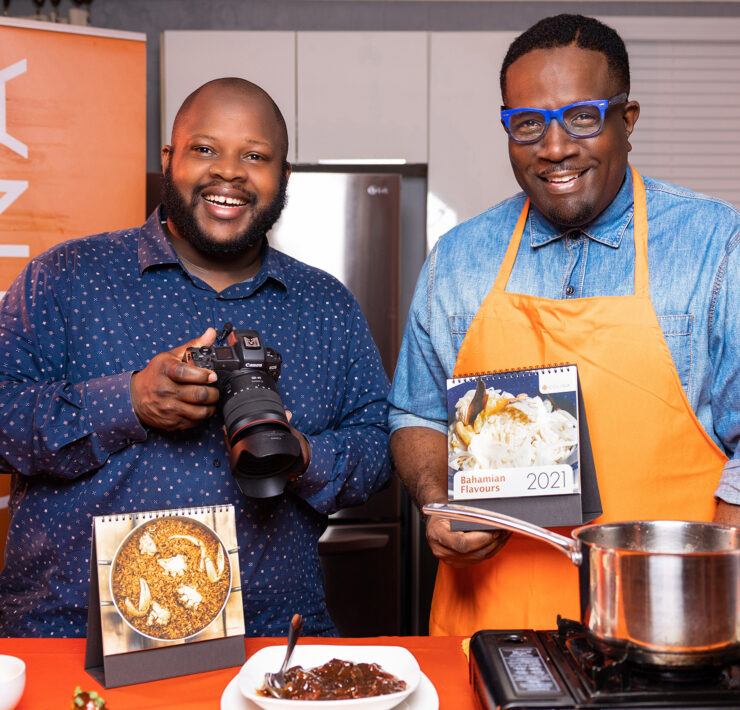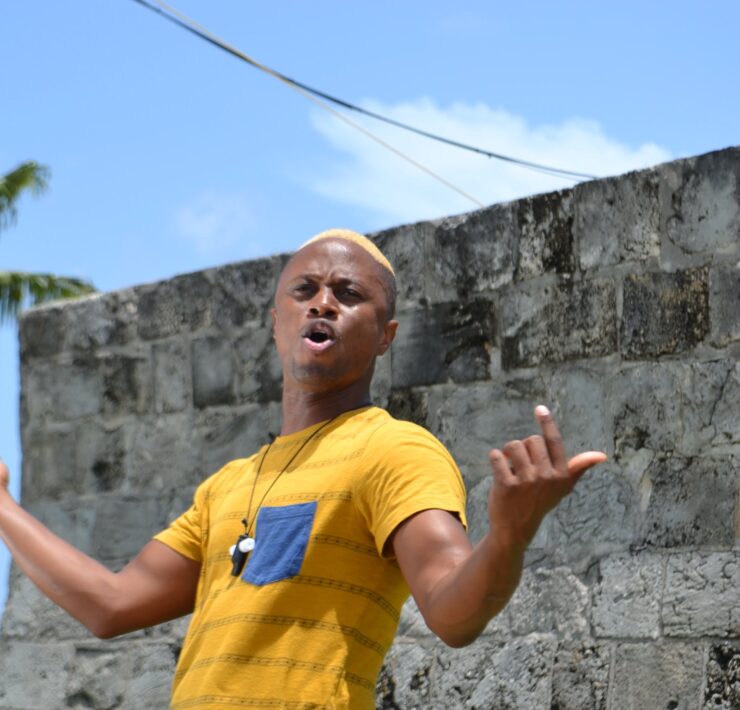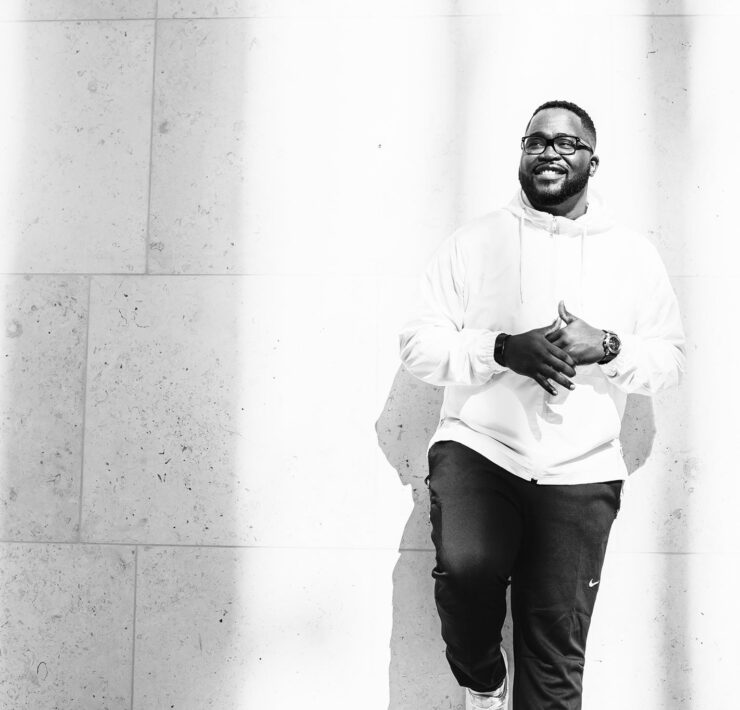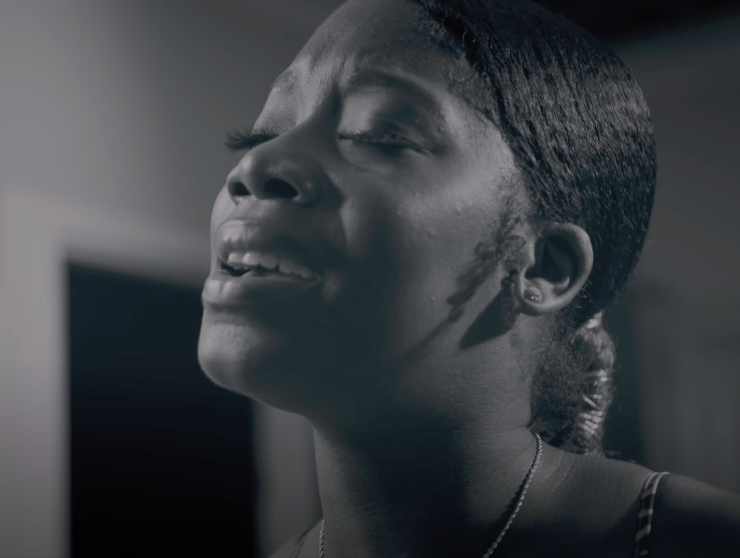“It’s crazy because we don’t think of women as having these powerful sexualities. We think that if they do, the image is that they’re wild and uncontrollable. I just like to push that idea that okay – so what if I am sexual? Does that mean that I’m out of control? Is a man out of control because he has one?” Yasmin Y. Glinton speaks about her poem “Bread and Honey” in her recently published book The Year She Wrote.
“I have all of this stuff built up instead of me – all of this lust and desire and if I want to, I’ll share it with you. You’d be lucky if I do and if I don’t then it’s still my choice.”
She has always been brave enough to say the words many women often think. She pushes the envelope when she scribes:
“Resting between these thighs is
a meal for a starving appetite.
I have gathered honey there,
for those lucky enough to dine.”
The courage to express herself has thickened in her veins along with her SAC pride. But she pays homage to her professors at the College of The Bahamas, now the University of The Bahamas that deepened her love for words and crafted her gift in writing. At St. Thomas University in Canada, she finished her undergrad degree as a double concentration in English Studies and Education. Last month she hosted a poetry and art exhibition for the release of her book The Year She Wrote, where proceeds collected helped to further her tertiary studies abroad.
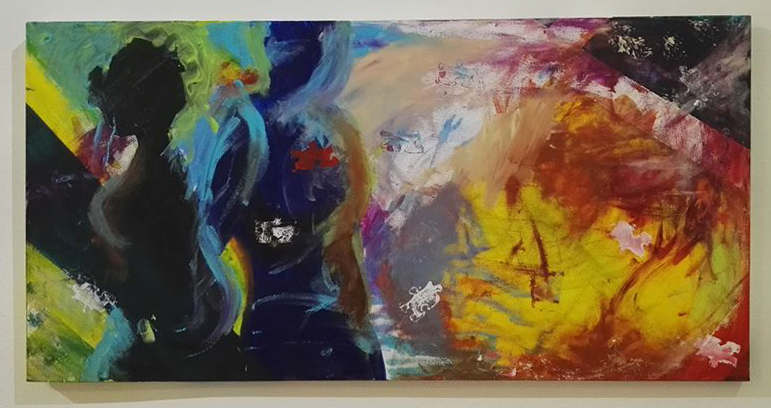
Now she chuckles at the mention of her poem “Picky as Hell,” that reads:
“Ain’t I woman enough to decide not to spread
my legs for you when you pull back the sheets
with a one sided invitation to join your marital bed?
Ain’t I woman enough to say I ain’t about to
cause no shit between your wife (who is in
some way a sister of mine) and I?
Ain’t I woman enough to know my own mind,
control my lust, know myself well enough to
Know I don’t wanna be another woman you fuck?”
She explains the poem is a response to men who feel it is appropriate to cheat in their marriages.
“I’ve been propositioned many times by married men to ‘let’s do this lil ting on the side’ and it’s like ‘no.’ And if you say that to them they’re like ‘oh, why you don’t want me?’ But why would you want to engage in this type of behavior? Like what the hell? Did you forget you’re married to someone else?
“The thing about it is, it could’ve been me and you’re wanting me to come in this bed with you and your wife? ‘Cause that’s how I see it.”
Yasmin describes it as a sassy Bahamian take of shutting down the patriarchy.
“Can’t I say no to you? Don’t I have that entitlement to make my own choices to tell you no? If I didn’t tell you that I’m into polygamy, don’t come at me like that,” she says with attitude in her voice.
She points out that the poem becomes deeper when one considers the existence of slavery and its abolition, and how black women especially were treated during that time. She repetitiously poses the question, “Ain’t I woman enough?” to echo the solidity in her womanhood and her freedom to choose.
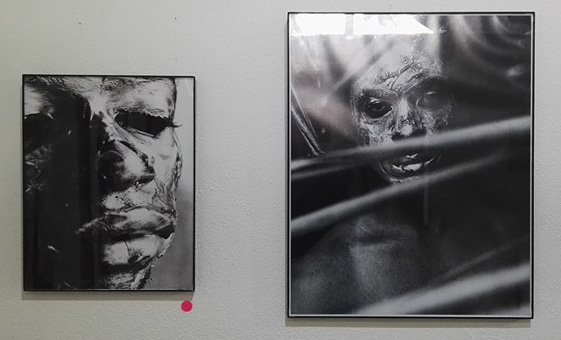
Though powerful, “Picky as Hell” seems quite contrary to her poem “Surrender,” which essentially speaks about the freedom in letting go.
“And if this path is
freedom,
then let it come. I have
held
my arms open for things
far worse than this. I have
bent
forehead to ground,
praying
to keep things that
destroyed me
If this path is freedom
then let
it take what is left. Should
a city
be built, may it rise out of
sorrows,
fears, and broken dreams.
If this
is freedom, may it
unleash all
that is bound inside me. If
this is
freedom, then let it come
for me.”
“This particular poem came at this point where I was just like ‘I can’t’. It was at a point where you feel like you’re suffocating yourself being someone else or living up to this ideal that’s killing you, basically. It’s killing your spirit self and it’s either you die or you let everything fall on top of you.
“I think the poem is just saying it’s okay, just let everything go because you’re trying so hard to be this type of employee, be this type of friend, be this type of woman, this type of daughter, this type of sister. And so there are so many hats we have to wear in the space of a day and when you just let them all go and be yourself, people are offended by that.”
Yasmin explains that we as women have carried worse things inside of us. She says we’ve carried our feelings and we’ve smothered them for somebody else’s comfort, but there comes a point when we must let go and live inside of our own comforts and find the freedom to express ourselves.
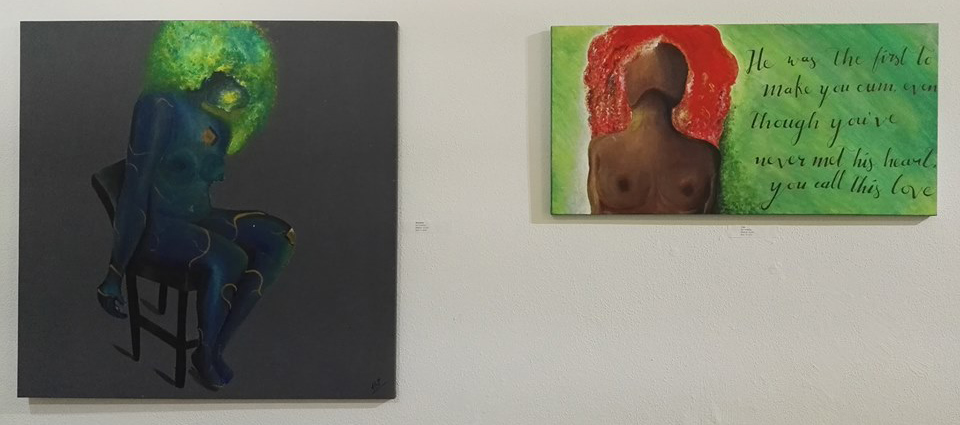
According to the author, the book itself was a lesson for her about liberation – that she shouldn’t have to worry about if it’s enough or even if it’s too much, but to embrace what it is and that it is good enough.
Some lessons learned were taught by her grandmother, a woman she admired dearly.
Though a native of New Providence, Yasmin spent summers on the island of Abaco with her aunts, cousins and grandparents. Her dad wasn’t always in the picture, so while her grandmother acted as her guide, her granddad stepped up to the plate in a father role. She credits her uncles as father figures as well, and cites her mother as a woman of strong faith and a stickler for obedience and higher education.
The poem “Praying I never forget her” recognizes her deceased grandmother and the teachings she’s gathered from her existence.
“I remember her tongue, agile and fierce and free as
mandated by the role of matriarch, which sat squarely
on her shoulders. I remember the tears she cried
when we were alone and she remembered
names of friends and family long gone. I remember
her and some days it is so potent I pull my
car on the side of the road just so I can breathe
through the memories of her that pile themselves
up in my eyes and chest. I remember her and
my mouth twitches with screams I never let free.
I remember my grandmother a robust woman filled
with softness, who never let the world make her
bitter. She didn’t care if people were snakes
she watered the grass just the same. I loved her all
the more for it. I remember her. I remember her goodness.”
She tries to choke back tears while smiling at the memories.
“My grandmother was just an amazing woman. I always think that if I can be just half of the woman she was, I would be an amazing teacher.”
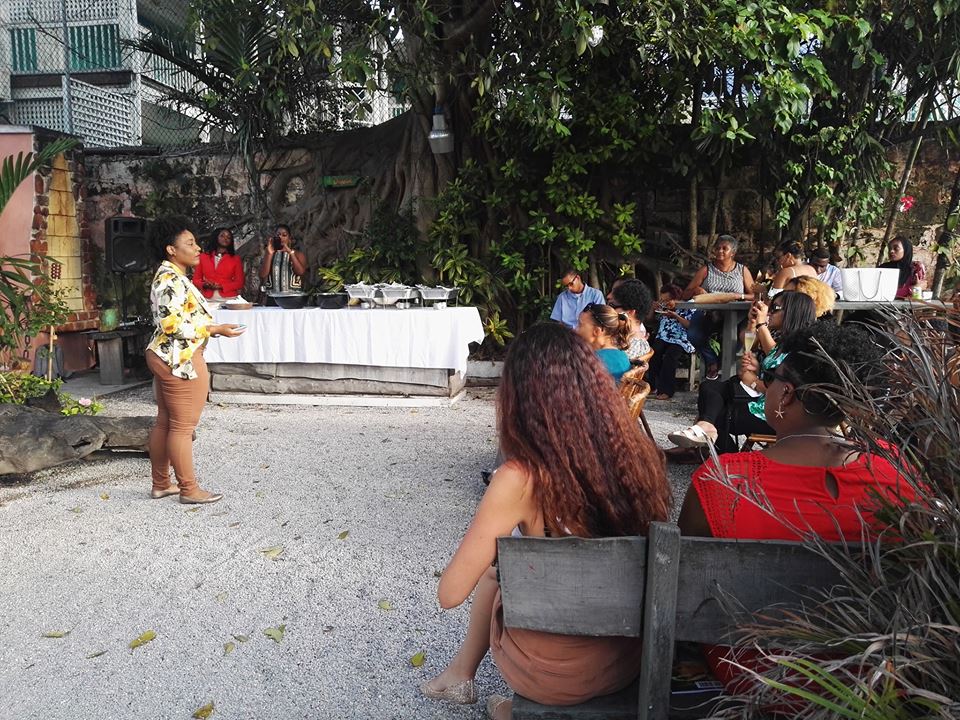
Her students might concur that she is indeed an amazing teacher. After obtaining her undergrad degree, Yasmin taught high school for five years on the island her heart knows best: Abaco. She calls her students her children, who oftentimes win her attention over her own personal affairs. And she wouldn’t have it any other way.
“I always want to give my children an example that they can never stop learning, they can never stop developing themselves. They should never stop reaching for this next level of self-awareness and that they should continue to pursue their dreams. So this book is a part of the dream that I have and it’s a way for me to say to them ‘okay, go get it’.”
Yasmin’s next phase of life is to obtain her Master of Arts degree in Creative Writing and Education from Goldsmiths, University of London in Lewisham Way, New Cross, London.
Her advice to aspiring writers and poets is simple: “The most important thing is having a strong community of support. That was the biggest thing for me. My professor from COB was always like, ‘Yasmin, just do it and I will go over it for you’. And having friends that really critique your work and give you the essentials to make it better. And the other thing is just doing it. That’s the hardest part, right? But just do it.”
Yasmin says another show may be in the works for sometime in August but for now, be on the look out for more poetic works on her Instagram page, @yasi.glint . You’re just a follow away from a world of wanderlust.
Kevanté is a creative writer, digital marketer, content curator and self-love enthusiast who found her passion for writing, public relations and social media coordination during her time at the University of The Bahamas. She has a special love for the creative arts, civil, queer and woman's rights and wishes to expose these truths through her writing. Follow her on social @alexia_chatelle across all platforms and be sure to keep up with her latest posts within the E-Life (242) collective.

